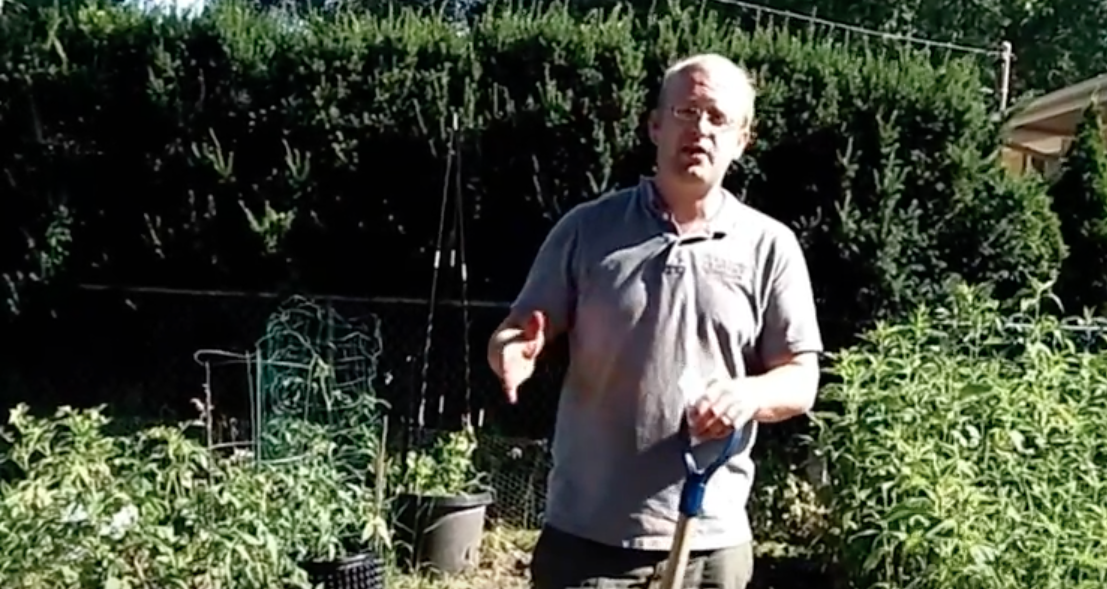
Advertisement
(MindBodyScience.news) It makes sense that cultivating a garden of any type can help one’s state of mind, even preventing or resolving issues of depression. Focusing on nourishing plant life takes one’s attention to nature and away from negative “stinkin’ thinkin'” that fosters depression.
The energy field of natural settings also helps calm the mind. Ayurveda practitioners recommend walks in nature, not malls, to balance and harmonize one’s energies. Then there’s the sunshine received while gardening to promote more vitamin D3, which also reduces depression risks.
Finally, there are the fruits of gardening food, the food itself. Most food gardening is done without synthetic chemical fertilizers, pesticides, and insecticides. So it’s organic despite not having the label!
It’s also very fresh and full of life. Agri-business products tend to lose nutrients while sitting around in warehouses and stores or in transit with long distance shipping.
Increasing food prices, increasing GMO infiltration, and increasing centralization of food sources that make the food supply more vulnerable to drought and other natural or man-made calamities can lead to losing confidence of how to eat in the near future.
A recently released movie, “Side Effects”, floats a definition of depression as losing confidence for the future. So if you’re concerned about the future of healthy food, food gardening may be a viable, healthy solution toward living without depression.
Some recent inspirational examples of small scale food gardening

The UK is renowned for individual or private small scale gardening, which historically has tended to be botanical. There have been several British newspapers and magazines quoting studies that prove gardening promotes an emotional and mental disposition that discourages depression. [1] [2]
But there has also been a rising interest in gardening foods over the past few years in the UK. Thus far the government has not interfered, at least not much.
One town in England has urban food garden plots in several public areas, even on the police station premises. All started by a small group of private citizens.
Upon the collapse of the Soviet Union in the late 1980s, Cubans were forced into a food supply crisis. They responded valiantly by growing food wherever they could on their own. And the Cuban government did better than look away, it helped promote and support that movement. [3] [4]
Even more amazing is the same situation of urban gardening has flourished in modern Russia. Today, a majority of Russia’s food supply is from small scale farming and family gardens that are encouraged and supported by the Russian government.
This Natural News article, “Russia’s small-scale agricultural model may hold the key to feeding the world” may raise both your eyebrows and astonish you.
That same thrust toward small scale private and collective volunteer urban gardening for food has cropped up in the USA as well. However, local, state, and federal governments have put up obstacles and enforced restraints against this grass roots movement instead of supporting it or at least looking the other way.
Despite this, a South Central Los Angeles food activist, Ron Finley, has boldly created an urban food guerrilla movement, taking over abandoned lots and public road medians and parkways with local volunteers using small-scale agricultural techniques to help feed the community.
In his TED talk, he lamented how “fast food drive-throughs are killing more South Central youths than drive-by shootings.” His guerrilla gardening approach has inspired young local volunteers who never had anything to do with gardening or even purchasing fresh organic whole foods before. [5]
Ron summarized it this way, “Growing your own food is like printing money.” Now that’s a solution not only for depression, but for encouraging healthy eating. “Food is the first medicine” is not just a clever expression. It’s the real deal. [6]
By PF Louis, Natural News.
Sources for this article include:
[1] //www.bbc.co.uk
[2] //www.dailymail.co.uk
[3] //www.dac.dk
[4] //www.archdaily.com
[5]//www.ted.com
[6] //preventdisease.com
More:
- Stress Isn’t Going Away, But There Are Ways To Better Manage It
- Nutritional Supplements Can Actually Cut Hospital Readmission Rates: Study
- Here Are 5 Ways To Gain The Self-Confidence You Need For The Perfect Life
MindBodyScience.news is part of the USA Features Media network. Get caught up on ALL of the day’s most important news and information here.
Submit a correction >>
Advertisement
Advertisements
















